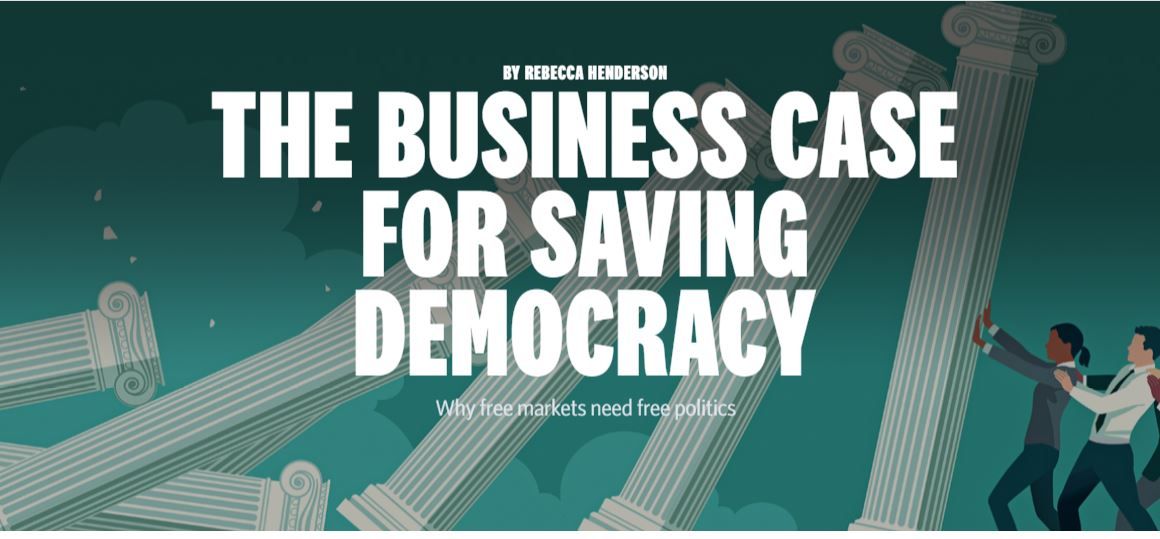
Democracy is in trouble.Recent survey data paints a sobering picture: Fifty-five percent of Americans say that their democracy is “weak,” and 68% fear it is getting weaker. Roughly half agree that America is in “real danger of becoming a nondemocratic, authoritarian country.” Further, many believe the system is rigged: Some 70% of Americans say that “Our political system seems to only be working for the insiders with money and power.”This is not just a U.S. phenomenon: Dissatisfaction with democracy has increased worldwide, with only 45% of people reporting that they are “satisfied with the way democracy is working in their country.”
Rebecca Henderson is analyzing this problem from a business perspective in HBR.org
If you don't have an HBR Subscription (which we recommend), maybe you can get informed and get engaged and involved here, on UDemocracy!
All things being equal, corporations seem unlikely to rush to democracy’s rescue. Business, after all, is booming. (with the specific problems and uncertainties during and after the covid19 pandemic).
By many measures, the world has never been more prosperous. World GDP — on an inflation-adjusted basis — has increased sixfold in the nearly 60 years since the author (Rebecca Henderson) was born, and GDP per person has nearly tripled.
Moreover, businesspeople tend not to care much for government, associating it with burdensome regulations, taxes, bureaucratic inertia, and incompetence. Rather than working to build up governments, business interests have waged campaigns against them for decades, often undermining the institutions that support democracy in the process.
In the United States, businesspeople fought ferociously against the New Deal and against programs like Social Security and Medicare. Corporations have broken unions, clashed with the free press, and flooded the political system with money in an attempt to control policy.
The business community has played an important role in strengthening democracy and in rebuilding society in countries as diverse as Chile, South Africa, and Germany. It can happen again, but only if business leaders understand the extent to which free markets depend on democratic governments — and only if they are willing to stop actively destroying them.
Business must renounce its political power and lobby hard against money in politics. It must take action to strengthen the very institutions that can oppose corporate interests. Business can be a valued contributor to the policy conversation, but only when consumers, experts, labor unions, and grassroots organizations are all playing a strong role. Otherwise, corporations’ engagement in politics is dangerously destabilizing.
Business must become a partner in building society, not a master.
Could businesspeople band together, alongside government, to support democratic reform?
And can they find a way to maintain the peace and prosperity that have made the past 50 to 100 years a golden age for so many?
More than that, we think People are not against democracy, but rather they think the checks and balances are not working properly to keep their elected officials and government officials accountable.
How can WE and how can U UPGRADE DEMOCRACY?
Comments